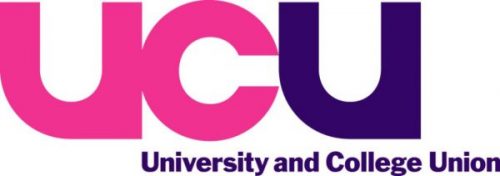The battle over the bill continues …
 That we’ve witnessed such public divisions amongst stakeholders over the future of Scottish higher education (HE) last year is a matter of regret. Sadly, since the proposals to reform university governance were first mooted in the 2012 von Prondzynski review, we’ve seen the sector split into two camps. The University and College Union (UCU), staff, other education unions, and NUS and students on one side, with all but one of the principals and current, unelected chairs of universities on the other. As well as giving a bad impression to policy makers generally, the split has also been unhelpful at a time when all voices should be pulling together to ensure the HE budget does not suffer.
That we’ve witnessed such public divisions amongst stakeholders over the future of Scottish higher education (HE) last year is a matter of regret. Sadly, since the proposals to reform university governance were first mooted in the 2012 von Prondzynski review, we’ve seen the sector split into two camps. The University and College Union (UCU), staff, other education unions, and NUS and students on one side, with all but one of the principals and current, unelected chairs of universities on the other. As well as giving a bad impression to policy makers generally, the split has also been unhelpful at a time when all voices should be pulling together to ensure the HE budget does not suffer.
It’s also worth recalling when the Governance Bill was first announced, Universities Scotland – the body lobbying for university principals – argued electing chairs of university governing bodies was undemocratic and union members nominated onto the governing body wouldn’t be able to act without breaking the Nolan principles of standards in public life. For a sector you think would be able to debate its future on academic principles of collegiate debate and evidence-based argument, the last few months have sorely disappointed.
Principals – bizarrely joined by such odd bedfellows like whistle-blower, Edward Snowden, and the Institute of Directors – argued the Bill – by increasing government control – could lead to the Office of National Statistics (ONS) reclassifying universities as public bodies with dramatic, detrimental consequences for finances.
UCU would not support any measures which either increased government control over universities – the autonomy of institutions is an important safeguard alongside the academic freedom of staff – or which threatened the status of the institutions where our members work. But we accept Ministers’ word that government does not want increased powers and that the bill will be amended during the parliamentary process to take out any clauses which threaten this.
When the Bill was first mooted, there was no consensus over the way for electing chairs of governing bodies would work in detail. Universities Scotland and current unelected chairs of court simply refused to countenance these measures becoming legislation. In the face of this, the Bill was drafted to allow space for the sector to come together, seek consensus and agree workable proposals – hence, the language in the Bill of saying that chairs will be elected, but in a manner later to be determined by ministers.
But allowing this space also provided opportunity for those opposing the Bill to raise their fears of ministerial powers and a raft of arguments on losing charitable status (which the Charity Regulator had already addressed) along possible ONS reclassification. Some commentators have called these arguments a ‘smokescreen’ designed to scare the government into dropping the Bill. Whether this was the intention or the concerns were genuine is immaterial. ONS doesn’t provide running commentary on its thinking so if you were looking for a smokescreen then the ONS reclassification issue – based on knowing there can’t be a definitive answer in advance of legislation being passed – would certainly be an effective for consideration.
It is important though to focus on what the Bill actually seeks to do, and what the Scottish Government, Labour as main opposition party, STUC and education unions want from it – namely, to bring greater democracy, staff and student engagement, and transparency to HE decision making by providing for chairs elected by staff and students, and for unions and students to have nominees sitting on governing bodies. This surely has to be in the best interests of education, students, the wider community, the public purse, and the staff working in HE.
Universities in Scotland have a long tradition of democratic governance. To our collective shame that power has withered in recent years with the elected chair in ancient universities effectively being handed over to unelected senior governors. The Bill returns our ancient universities to a position of having an elected chair of court and brings that same democratic governance to our newer universities and institutions for the first time. Making our universities more democratic, accountable and transparent is a prize worth winning and can ensure the sector continues to be successful. It is an ambition which needs to remain at the forefront of the debate while the opponents of reform use every argument and tactic at their disposal to derail progress.
Mary Senior is the Scotland Official for UCU Scotland



